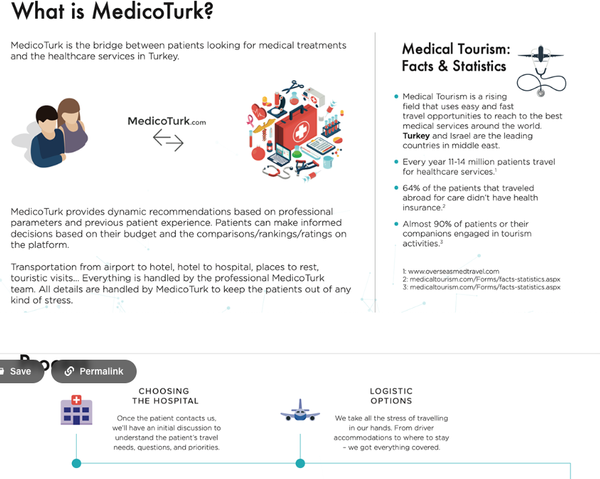Integrative Approaches to Managing Chronic Stress
Table of Content
Welcome to the labyrinth of chronic stress, a pervasive adversary that stealthily infiltrates the lives of countless individuals. It is not a mere fleeting annoyance but an enduring, sometimes even sinister force that silently wreaks havoc on both our physical and mental well-being. Chronic stress can be ignited by an array of triggers, spanning work pressures, financial burdens, and personal tribulations, weaving itself into the fabric of our daily existence.
Comprehending the profound impact of chronic stress on health is paramount. Beyond the palpable unease, it can pave the path to a myriad of severe health issues, including cardiovascular complications, immune system frailty, and the shadowy realm of mental health disorders. In light of this, the significance of effective stress management emerges as a beacon of hope amidst the tumultuous sea of stress.
It's not merely about patching up the cracks, but rather constructing a comprehensive edifice that addresses the root causes and endows enduring relief. This article embarks on a journey into the realm of integrative approaches to chronic stress management, where the corridors of traditional medicine converge with complementary practices such as meditation, yoga, and aromatherapy. By unveiling the full scope of chronic stress and embracing holistic stress management, individuals can embark on a transformative quest toward a life marked by resilience, equilibrium, and well-being.
Traditional Medicine in Stress Management
In the labyrinth of stress management, traditional medicine has long been a trusted guide. These conventional approaches, often rooted in pharmaceutical interventions and psychotherapy, have provided invaluable tools in understanding and mitigating stress. They offer a structured framework for diagnosis and treatment, grounded in years of medical research and practice.
However, it is important to acknowledge the limitations of traditional medicine when it comes to addressing chronic stress. While it excels in acute stress management and specific medical conditions, it may fall short in offering a comprehensive solution for the sustained and multifaceted nature of chronic stress. Traditional medicine often focuses on symptom relief rather than delving into the underlying causes of stress, which can be deeply rooted in lifestyle, psychology, and personal circumstances. Moreover, some individuals may prefer non-pharmacological or more holistic approaches that consider the mind-body connection.
Alternative Approaches to Stress Management
Embarking on the journey of chronic stress management unveils a diverse realm of alternative methods, each offering a distinctive avenue to solace and restoration. These holistic practices, deeply rooted in ancient wisdom and contemporary understanding, provide an enriching tapestry of possibilities for nurturing overall well-being and inner harmony.
Meditation, often regarded as the art of mindful introspection, invites individuals to explore the profound depths of their consciousness. Through deliberate focus, controlled breathing, and the cultivation of presence, meditation serves as a gateway to transcend the tumultuous currents of stress. It bestows mental clarity, emotional equilibrium, and a profound sense of inner serenity.
Yoga, a time-honored discipline that seamlessly unifies the physical and spiritual dimensions, offers a holistic approach to stress management. By engaging in a symphony of postures, breath regulation, and meditative practices, yoga imparts physical strength, suppleness, and mental serenity. Beyond releasing the physical tension that stress often induces, it enhances self-awareness, equipping individuals with resilience in navigating life's challenges.
Aromatherapy, a fragrant odyssey that harnesses the therapeutic potential of essential oils, delivers a sensory sanctuary for stress relief. Derived from the aromatic essence of plants, these oils provide a natural antidote to stress and emotional turbulence. Whether through inhalation, topical application, or diffusers, scents like lavender, chamomile, and eucalyptus extend their soothing influence, calming the senses, alleviating anxiety, and elevating overall well-being.
Similarly, engaging in leisure activities that bring joy and relaxation can be a vital part of stress management. For some, this might include visiting places like Awintura, where the excitement of games and the vibrant atmosphere provide a temporary escape from daily stressors. It's important, however, to engage in such activities responsibly and to view them as one part of a broader stress management strategy. Additionally, online platforms such as Slotozilla offer a variety of slot games that can be a fun, casual way to unwind. It's important, however, to engage in such activities responsibly and to view them as one part of a broader stress management strategy.
Integrative Approaches to Managing Chronic Stress
Unlocking the secrets of effective chronic stress management reveals a harmonious synergy between traditional medicine and alternative methods, fostering a holistic strategy to combat the intricate challenges of stress. This integrative approach marries the precision of conventional medical practices with the mindfulness of alternative therapies, offering a comprehensive toolkit to address the multifaceted nature of stress.
The true power of integrative approaches lies in their ability to harness the unique strengths of each realm. Traditional medicine, grounded in empirical evidence and pharmaceutical interventions, establishes a robust foundation for tackling specific health issues and acute stressors head-on. Meanwhile, alternative methods, including meditation, yoga, and aromatherapy, provide holistic avenues for nurturing mental clarity, emotional equilibrium, and overall well-being.
What sets integrative approaches apart is their capacity to delve beyond surface-level symptom management. By addressing the underlying causes of stress, they strike at the heart of the matter. Consider an individual grappling with chronic pain intensified by stress-related tension an integrative approach may encompass medication for immediate pain relief, complemented by yoga practices that alleviate muscle tension and encourage relaxation. Likewise, those dealing with anxiety and sleep disturbances might benefit from a blend of traditional therapy, meditation, and aromatherapy, forming a comprehensive and personalized stress management plan.
Concrete examples further underscore the efficacy of integrative approaches. Picture someone contending with hypertension, a condition exacerbated by the relentless grip of chronic stress. Collaborating with a multidisciplinary healthcare team, they may find solace in combining traditional medications with stress-reduction techniques like meditation and regular exercise. This integrative strategy not only helps manage blood pressure but also enhances overall well-being, effectively diminishing the adverse effects of stress on their health and life.
Meditation as a Stress Management Tool
Embarking on the tranquil journey of meditation unveils a captivating world of techniques, each possessing the potential to alleviate chronic stress and foster inner serenity. In this section, we embark on an exploration of meditation's diverse practices, delving into their intricacies and effectiveness as powerful tools for stress management.
Meditation encompasses a rich tapestry of techniques, including mindfulness meditation, loving-kindness meditation, and transcendental meditation. Each offers a unique path to mental clarity and emotional equilibrium, empowering individuals to harness the forces of focused attention, controlled breathing, and heightened self-awareness. These practices become invaluable allies in navigating the turbulent seas of stress with grace.
Scientific research has cast a brilliant spotlight on meditation's role in stress reduction. A wealth of studies has demonstrated its ability to lower stress hormones, reduce anxiety, and enhance overall psychological well-being. The brain's remarkable neuroplasticity allows it to adapt and rewire in response to meditation, leading to structural changes that promote emotional resilience and a profound sense of calm.
This section also offers practical guidance for seamlessly integrating meditation into daily routines. From carving out dedicated meditation time to creating a serene and sacred space for practice, individuals can embark on a transformative journey of self-discovery and stress management. By making meditation an integral part of their lives, they unlock a potent tool for nurturing sustained well-being amidst life's challenges.
Yoga for Stress Relief
Yoga, an age-old practice that seamlessly harmonizes the physical and mental dimensions, emerges as a comprehensive remedy for effectively managing chronic stress. In this section, we embark on an exploration of the profound benefits that yoga bestows upon both body and mind, shedding light on its pivotal role as an effective stress management tool.
Yoga's embrace imparts a multitude of physical benefits, providing solace for those seeking respite from the burdens of stress. Through a graceful fusion of postures, controlled breathing, and meditative techniques, yoga bestows flexibility, strength, and inner peace.
It not only alleviates the physical tension often triggered by stress but also cultivates heightened self-awareness. This newfound awareness becomes a guiding compass, empowering individuals to navigate the turbulent currents of life's challenges with grace and resilience.
Within the rich tapestry of yoga, an abundance of personal stories and heartfelt testimonials bear witness to its transformative power. Individuals from diverse backgrounds and walks of life share their poignant narratives, recounting their journeys towards inner calm, enhanced focus, and emotional equilibrium through yoga.
These real-life testimonials serve as compelling evidence of yoga's profound impact on overall well-being, underscoring its role as a treasured stress management tool.
This section also provides invaluable guidance on selecting the right yoga practice for stress relief. Amidst the plethora of yoga styles and approaches, the quest becomes a deeply personal voyage of exploration and self-discovery.
Whether one gravitates towards the gentle embrace of Hatha, the fluidity of Vinyasa, or the meditative serenity of Yin yoga, the key lies in aligning the chosen practice with individual needs and aspirations for stress management. Through this empowering journey, individuals unlock the path to a life adorned with tranquility, balance, and enduring well-being.
Aromatherapy: The Power of Scent
Welcome to the enchanting realm of aromatherapy, where the captivating dance of fragrances holds the key to effective stress management. In this section, we embark on a fragrant journey, introducing the world of aromatherapy and illuminating the subtle mechanisms by which it exerts its influence on our senses.
Aromatherapy, at its essence, harnesses the therapeutic potential of essential oils, derived from aromatic plants, to enhance both physical and emotional well-being. These oils, whether inhaled or applied topically, engage with our olfactory system, triggering responses in the brain that can alleviate stress, anxiety, and tension.
The realm of essential oils offers a diverse array of scents, each carrying its own unique stress-relieving properties. Lavender, celebrated for its soothing attributes, beckons relaxation, while invigorating citrus oils like lemon and bergamot uplift the spirit.
This section also provides practical insights into seamlessly incorporating aromatherapy into your stress reduction toolkit. From diffusing essential oils in your living space to creating personalized blends for bath or massage, the possibilities are as diverse as the fragrances themselves.
By acquainting yourself with the aromatic symphony of essential oils and customizing your approach to your individual needs, you unlock the power to infuse your life with the gentle yet profound magic of aromatherapy. In doing so, you transform moments of stress into fragrant sanctuaries of tranquility, nurturing your overall well-being.
Case Studies: Successful Integration of Approaches
In this illuminating section, we delve into real-life case studies of individuals who have embarked on the transformative journey of combining traditional medicine with alternative methods for effective stress management. These narratives serve as beacons of inspiration, shedding light on the positive outcomes and profound improvements in overall well-being achieved through the integration of diverse approaches.
Meet Sarah, a resilient individual who, while seeking relief from chronic stress-related health issues, decided to complement her conventional medical treatment with mindfulness meditation and acupuncture. Over time, Sarah experienced a remarkable reduction in stress-related symptoms, including improved sleep quality and a notable increase in her sense of calm and emotional balance.
Then there's David, who, in his quest to combat work-related stress, adopted a comprehensive approach by combining prescribed medications with regular yoga practice. David's journey led to enhanced physical fitness, reduced stress levels, and a renewed sense of vitality, illustrating the potential synergy between traditional medicine and alternative techniques.
These case studies are just a glimpse into the tapestry of success stories where individuals have harnessed the power of integrative approaches. By embracing the synergy between traditional and alternative methods, they have achieved not only symptom relief but also a deeper sense of well-being, affirming the effectiveness of a holistic approach to managing chronic stress.
Experts' Views
Leading experts in the field of stress management and holistic health are offering fresh insights into the significance of integrative approaches for managing chronic stress.
Dr. Emily Carter, a renowned psychologist, emphasizes that combining traditional medical treatments with alternative methods empowers individuals to address the root causes of stress, promoting long-term resilience.
Dr. Mark Johnson, a respected integrative medicine specialist, underscores the importance of personalized approaches, stating that what works for one person may not work for another, highlighting the need for tailored solutions.
Dr. Sarah Collins, a pioneer in mind-body techniques, suggests that integrating practices like meditation and yoga into daily routines can enhance emotional well-being, citing scientific studies demonstrating their positive impact on stress reduction.
These expert perspectives reveal a growing recognition of the potential benefits of an integrative approach, offering valuable guidance for individuals seeking effective ways to manage chronic stress in today's fast-paced world.











